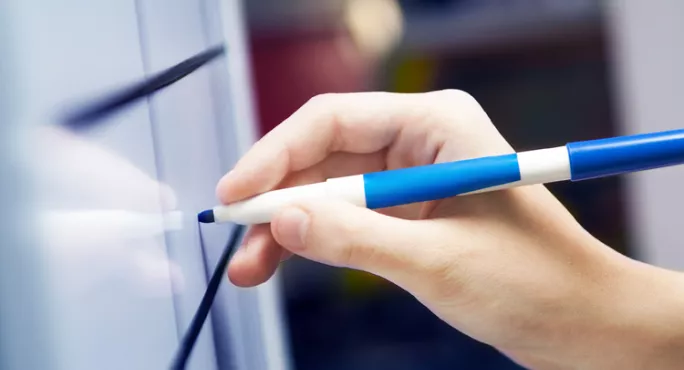Interview lessons: are they really a good measure of teaching ability?
Share
Interview lessons: are they really a good measure of teaching ability?
The interview lesson. All that planning. The search for the perfect resource. Those last-minute tweaks. Oh, the nausea that strikes whenever you remember what it is you’re preparing for. There are the mental run-throughs, the vivid dreams the night before; then the actual performance itself.
But none of that preparation can truly make you ready to teach a one-off 20 minute lesson to a bunch of children you’ve never met before. No matter how much information you’ve asked for from the school, the lesson will only really represent your ability to plan and prepare some activity that will last for the allotted time.
A skilled observer of these snapshots of you as a teacher in action might perceive an ability to relate to children; to respond to the needs of the group as they are revealed. They might be able to gauge your confidence levels. But little else can truly be gained from seeing you teach an interview lesson.
Demonstrating self-reflection
I’ve seen good interview lessons from teachers who rarely delivered a similar standard once appointed and I’ve seen teachers who taught weak interview lessons go from strength to strength once employed. Although necessary - of course we need to see teachers teach as part of the selection process - the interview lesson alone is not up to the job.
What if there was a better way to demonstrate your abilities as a teacher that didn’t hinge on that short time in an unfamiliar classroom?
Your efficacy as a teacher is displayed not only by what you do in the classroom, but what you do before and after; a hallmark of good practice is that you use feedback to improve your practice. This feedback comes from three main sources: the children (usually implicitly), yourself (after some reflection on the lesson) and the observer. What if, as part of the interview process, you were given the opportunity not only to self-evaluate your lesson, but to then act on that assessment in some way? Wouldn’t that allow you to demonstrate another important dimension of your ability as a teacher?
It might seem that adding an element to the interview process would only make it even more of an ordeal for candidates, but if the added element would give you greater opportunities to demonstrate who you are as a teacher, the extra time and effort would be worth it.
Another dimension to interviews
What might this added element look like? I don’t suggest teachers would have to go back into the classroom (the children’s wellbeing must be a priority), but candidates could be given the chance to re-plan the lesson, or to plan the next sequence of lessons, taking into consideration information gained from feedback, assessment and evaluation. They could then informally present their ideas to members of the interview panel.
By adding another half an hour to the day, the panel could gain a wealth of evidence about a candidate’s teaching prowess: how reflective they are, how they respond to needs, how resilient and creative they are, how they use evidence to inform their planning and so on. It might be that some teachers would feel pressured by this kind of task, but it would certainly make for a more rounded interview experience, and it would give a second chance to those candidates whose lessons didn’t quite go to plan.
These suggestions aren’t just theoretical. It’s exactly what we asked candidates to do in the last round of interviews at my school. As a result of employing these methods, we now have three more excellent teachers in our classrooms, teaching our children to a high standard. To me, that seems worth a little extra pressure.
Aidan Severs is an assistant vice principal at a primary school in the North of England. He blogs at ThatBoyCanTeach and tweets @thatboycanteach




